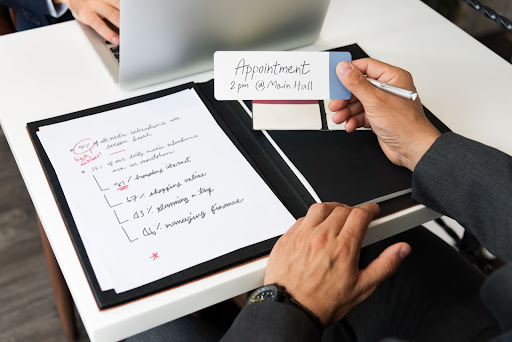You’ve been holding on to that email that you’ve meant to send for a while now. But you can’t seem to find the right time to send it to HR. So weekends passed, and you’re still working as your request for a vacation leave got drowned in the emails.
Sometimes, it’s hard to file a leave and unplug from all your work because it leaves you feeling guilty. Because of the changing trends, people often think that your work-life balance defines you and that working hard every day is the standard. Whether you’re an employee or a start-up entrepreneur, it’s not easy to take it slow because you feel that dedication and pushing yourself to the limit is the only way to succeed.
It’s valid to feel that way, and you’re not alone in that dilemma. You find it hard to leave for an extended period because, wherever you go, you keep thinking about that project sitting on your desk or the emails piling up on your phone.
Regardless of all of these, you deserve a break. Everyone needs some “me” time to relax and recuperate. It doesn’t matter if it’s a personal request or if it’s your supervisor telling you off; stop delaying your rest day and file that leave now.
You won’t be able to enjoy your break if you keep feeling bad over leaving your duties behind. So, here are some ways to help you take a break from work without feeling guilty:
1. Finish as much work as you can

Try to leave less work before you go on a vacation. Plan your leave months in advance to have time to tie up loose ends.
It’s impossible to finish all your workload in one go, so learn to prioritize the most important ones. It’s helpful if you can create a scheduler or an outline to keep track of all the reports and projects you are handling. Manage your schedule and prioritize urgent meetings and paperwork. Finishing the most critical tasks will make leaving easier because you know you have complied with everything expected of you, which in turn can lessen the guilt you feel.
2. Take advantage of idle months

Most workplaces experience a slow down at a specific time of the year. This is applicable mainly to business establishments where customers could be seasonal. Observe the pattern in your office and look out for days or months when there are fewer demands on work. It could be a couple of weeks where you can have an earlier time-out or your desk is more spacious than usual. For government offices, where work is continuous all year, check the dates where no important holiday celebrations or government projects are scheduled.
When planning for a leave, choose the slow business dates so you don’t have to worry about work piling up before you come back or clients being missed. Another pro-tip is to take advantage of the times when the team has more members working or when new members are hired. This way, you won’t have to keep thinking about whether your office team has enough manpower while you’re away.
3. Identify a “go-to” person

Always be prepared. Planning ahead of your break ensures you can reduce the disruptions you’ll experience when you eventually leave work. For this to be possible, you must identify people you can trust to manage your work while you’re on vacation.
Train trustworthy staff members or ask for a favor from your close colleagues to help you. You never know what can happen, so being prepared is essential. Leaving reminders for them doesn’t necessarily mean pushing your responsibilities onto them.
Your “go-to” person is the one who knows where you put your files or how to open your personal computer. They should be knowledgeable about the projects you’ve been working on.
In events where you’re away and someone from your workplace needs something from you, they can do it for you instead. As long as the point person agrees and it’s simple tasks like handing out reports or receiving files and parcels, it’s going to be fine. This will reduce the number of phone calls that can distract you from your scheduled rest.
4. Set boundaries

What particular things job-related should I do and shouldn’t do when on leave? Ask these things to yourself when you’re planning to take a break. While people will tell you to turn off phones or ignore emails, this does not apply to everyone. Some people get more stressed when they turn off their phones because this can make them feel disconnected from the world. As said before, it’s hard to unplug completely from work, so managing and setting boundaries for yourself is better.
If checking your emails or calling someone from work is bringing you peace of mind, then do it. However, set a time and duration so you don’t fall into the same routine again. This is the same with other work-related things like talking to clients, setting appointments, or sending files to your superiors or staff.
5. You deserve it

More than anything else, you have to remind yourself that you deserve that break. Employees are afraid to take a leave because they think their superiors might get angry and fire them for missing work. No need to worry; they can’t fire you over an officially filed leave that the company acknowledged.
Don’t waste that yearly paid time-off by camping in your office. Some bosses would even encourage their employees to take a break for their well-being so that they can boost their creativity. A paid time off or a well-being break is a right; companies must grant their workers this right.
The next time you doubt if you should file that leave or not, always remember that your health always comes first. If your body is asking for a rest, give it what it needs. Hard work is good, but you can’t work properly if your body is not in prime condition. This is your sign to close your laptop, pack your bag, and take that leave.
Find out more about these stories at http://mnlmag.com/ or you can visit http://theluzondaily.com/ for the latest news and updates.





